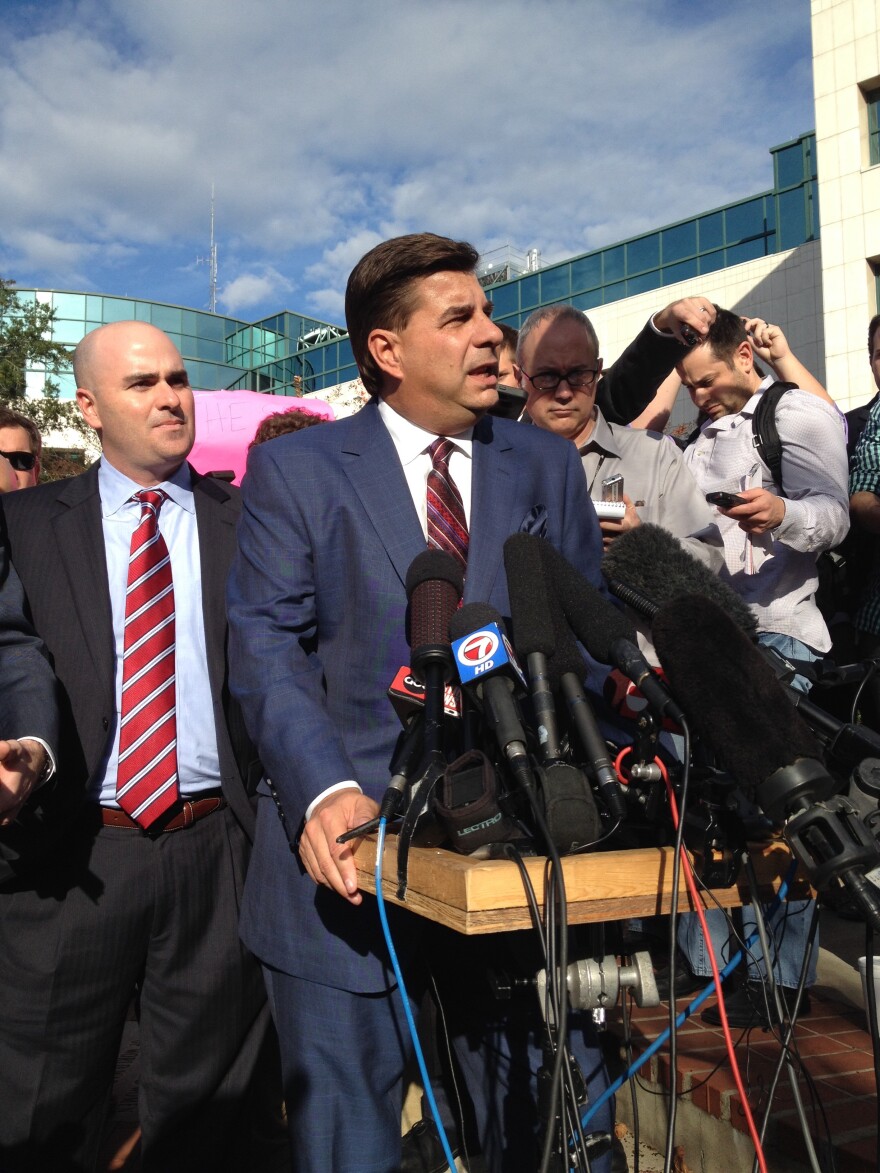The end of the investigation of Florida State University quarterback Jameis Winston this week shut the door on criminal charges but opened a discussion of how sexual assault is talked about.
As Tallahassee State Attorney Willie Meggs closed the book on Winston’s case, he was careful with his words. For instance, Meggs danced around whether Winston did anything wrong. After all, a criminal case is based around what can be proven in the eyes of the law. And Meggs says Winston’s accuser had trouble remembering the night she and Winston had what Winston’s lawyer Tim Jansen referred to as a “one-night stand,” making it hard to charge the quarterback with anything.
“Her recall of the events of that night have been moving around a good bit,” Meggs says. “There’s some memory lapses, there were some major issues. And we were trying to determine about the memory lapse what would cause that.”
But Meggs was also careful not to speak ill of the woman.
“Very little can be profited by disparaging the victim in this case,” he said.
But after Meggs’ press conference was done, Jansen took issue with that term.
“She is not a victim at this point. She’s a complainant and she’s an accuser," Jansen asserted. "Now she becomes a victim when a jury says she’s a victim or when a person enters a plea and admits to victimizing her.”
But Chip Springer, who helped found the Tallahassee Police Department’s sex crimes unit and was its leader when he retired from the force in 2004, disagrees. “If you can’t, above and beyond any reasonable doubt, prove that the incident occurred and that Person A is the victim and Person B is the perpetrator, that doesn’t mean that you don’t still have a victim,” he says.
Springer says in practice it’s easy to determine who a victim is.
“Initially the victim is always going to be the first person to contact law enforcement or a rape crisis center and allege that they have been the victim.”
What’s more, there’s precedent for calling someone a victim in legal documents originated by the TPD or the Leon County Sheriff’s Office. Meg Baldwin is a former Florida State University law professor who now runs Refuge House, a domestic violence and sexual assault counseling center.
“It’s normal protocol for TPD/LCSO materials as well as state attorney documents to refer to a complaining witness in any crime as the victim,” Baldwin says.
Baldwin says now that the case is over, the onus is on the community to process its outcome and determine how to lessen future such occurrences.
“I’d really welcome the opportunity to sit down with the leadership of the athletic department and also the FSU Student Affairs Department in a really thoughtful way to talk about how the FSU football team could really stand as leaders in the struggle against sexual assault.”
When asked if approaching the football team would be tantamount to admitting Jameis Winston had done something wrong, Baldwin disagreed. But Springer says in his time investigating sex crimes, he had several run-ins with athletes and coaches and found that most of the sexual assaults in Tallahassee happen on or around the Florida State and Florida A&M campuses.
So if there’s one point of agreement emanating from weeks of contention, it may be this: Tallahassee’s college campuses have the opportunity – if not the responsibility – to determine how the conversation proceeds.




